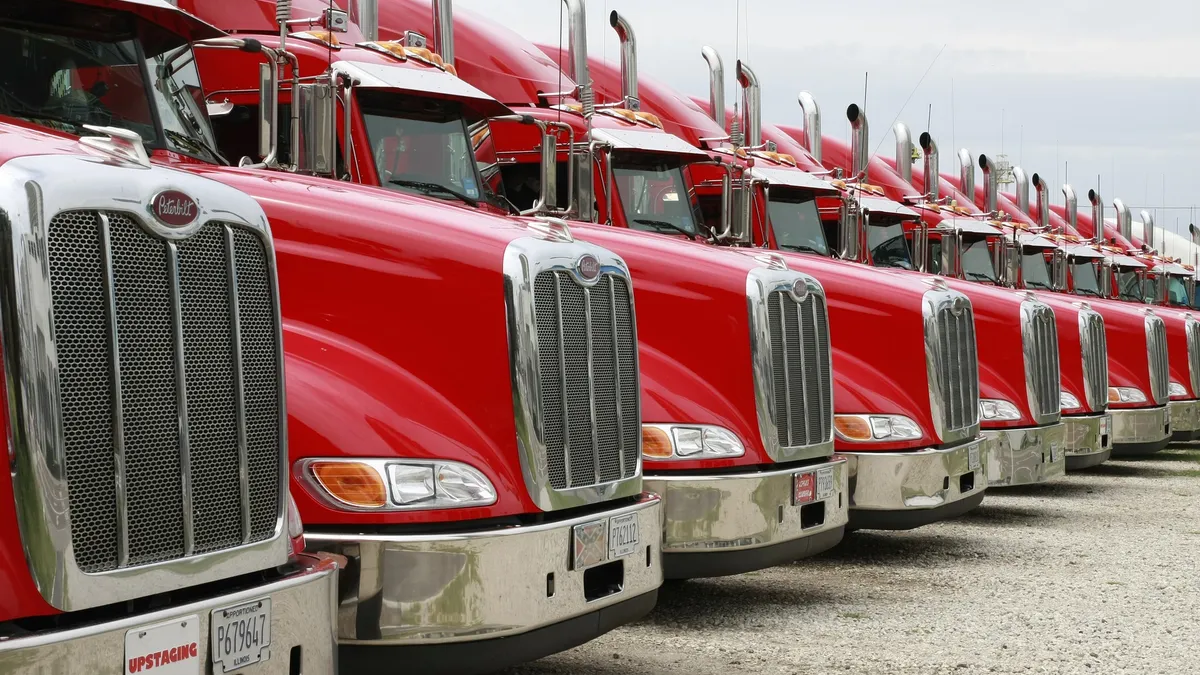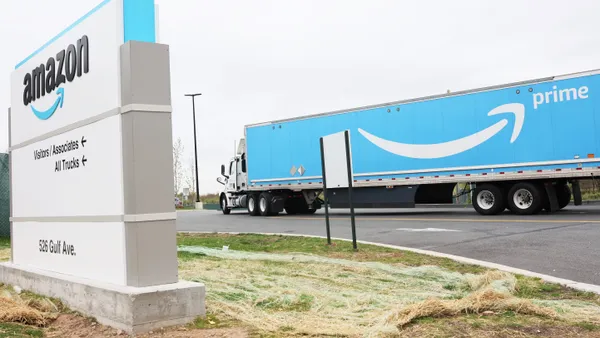Dive Brief:
- Truckers are planning a slow roll protest on Interstate 465 that will begin Thursday around 11 a.m. in Indianapolis. Members of the Indiana Truckers Facebook group planned and organized the event.
- The protesters want to draw attention to federal regulations on the trucking industry they view as unnecessary and unfair, namely, the recent requirement that drivers use electronic logging devices (ELDs) to track their working hours, according to Brian Brase, a heavy hauler out of Pennsylvania who helped organize the event
- "We’re trying to do this by the book," Brase said, who emphasized the group has worked with State Troopers to plan the event and picked a time that has as little impact on traffic as possible. "But, yes, we still have to make a statement to get our point across."
Dive Insight:
"All we’re trying to do with the slow roll is draw attention to the things that are affecting the industry," Brase said in an interview with Supply Chain Dive. Those issues include the ELD mandate, the flexibility of their work hours and driver education.
ELDs track drivers' hours automatically and drivers must produce the records to law enforcement or regulators on demand. This, Brase said, is a violation of the Fourth amendment right to privacy and the Fifth amendment protection from self-incrimination.
"They’re not comfortable with the additional oversight in many cases," President of the Indiana Motor Truck Association Gary Langston, said of drivers' typical complaints with the ELD mandate. ELD device implementation has had positive impacts, such as increased hours of service (HOS) compliance, Langston said.
"Technically people would cheat their logbooks" when it was a manual process, Brase said. But the majority of the time this was done to avoid rush hour traffic, find better parking, take a break or make delivery times — it usually wasn't an attempt to stay on the road longer, he said.
The implementation of ELDs has also highlighted issues within the trucking industry like the lack of parking and the long amount of time truckers are often left waiting to pick up loads, eating into their hours of work, Langston said.
This is where more flexible hours can be helpful, the group argues. Drivers are currently allowed to drive 11 hours in a 14-hour period. This means if the driver stops for a break or to avoid rush hour traffic then that clock on the 14-hour window continues ticking. The drivers argue that the clock should stop if they want to take a break, so they're not worried about their 14-hours running out.
“No one is looking for more drive time," Brase said. "They just want some flexibility in it."
The Federal Motor Carrier Safety Administration (FMCSA) is already considering a rule change for HOS requirements that could make it more flexible for drivers. Brase said the agency has done a good job of taking driver complaints seriously and working with the groups that represent them. "We know they’re willing to meet with drivers," he said. Brase expects a decision on this change "any day now." The FMCSA did not respond to a request to comment on the slow roll prior to publication.
The group also wants more education requirements for obtaining CDL licenses. Brase said some CDL programs, which he referred to as "CDL trucker mills," were approving drivers without many hours on the road. The group wants the FMCSA to have a minimum number of hours, they're hoping for 400, that a driver must train on the road before getting the CDL. "Is that too much to ask?" he said.
The location in Indianapolis was chosen for the slow roll as it's a central location for many truckers. Many of them will drive to the slow roll while on the clock, take a couple laps around I-465 and get back to moving freight down the road, Brase said.













